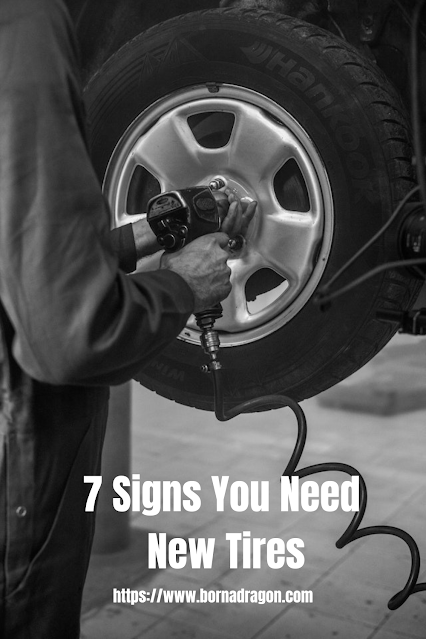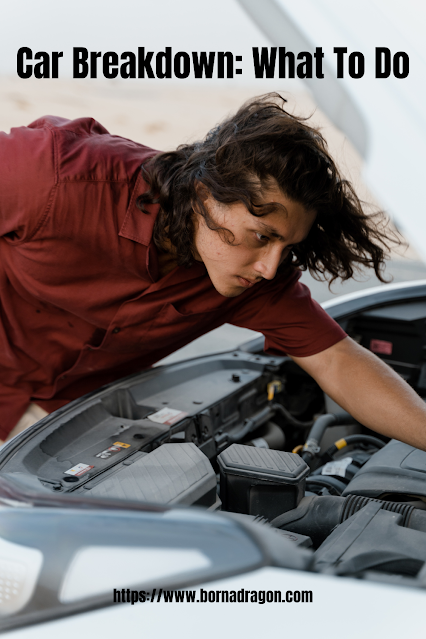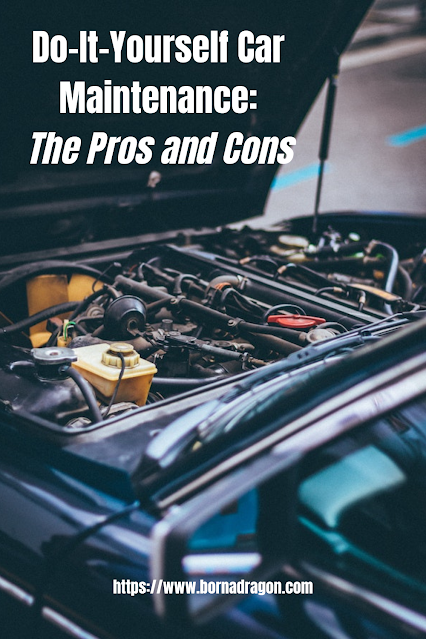As a vehicle owner, maintaining your car is essential to ensure its longevity, performance, and safety on the road. Routine maintenance not only helps avoid expensive repairs but also boosts fuel efficiency and safeguards the value of your investment. This guide will provide you with five essential tips to help you maintain your car and keep it running smoothly for years to come.
1. Follow the Manufacturer's Maintenance Schedule
One of the most important steps in maintaining your car is to follow the manufacturer's recommended maintenance schedule. Refer to your car's owner's manual or consult with a trusted mechanic to determine the specific maintenance tasks and intervals required for your vehicle.
This may include regular oil changes, filter replacements, tire rotations, brake inspections, and more. Adhering to the recommended maintenance schedule ensures that vital components are inspected, repaired, or replaced at the appropriate times, preventing potential issues and extending the lifespan of your car.
2. Keep Your Car Clean, Inside and Out
Regular cleaning is not only about aesthetics but also plays a crucial role in maintaining your car's condition. Keep your car clean, both inside and out, to prevent dirt, dust, and grime from accumulating. Wash the exterior regularly to remove debris, bird droppings, and corrosive substances that can damage the paint.
Pay attention to the undercarriage, as road salt and other contaminants can cause rust and corrosion. Clean the interior to remove dirt, spills, and odors. Vacuum the carpets and upholstery, wipe down surfaces, and use protectants to prevent cracking or fading. By keeping your car clean, you not only preserve its appearance but also prevent long-term damage to its materials.
3. Check and Maintain Fluid Levels
Regularly checking and maintaining fluid levels is vital for the proper functioning of your car's various systems.
Here are some tips on how to check and maintain fluid levels:
Engine Oil
Proper engine oil maintenance is crucial for your car's longevity and performance. Engine oil lubricates, cools, and cleans internal components. Over time, it can become contaminated or break down due to heat, losing effectiveness. Regularly check and change the oil to prevent costly repairs.
To check the oil level, park on a level surface, let the engine cool, locate the dipstick, pull it out, wipe clean, reinsert, and check between minimum and max marks. Add the recommended oil type if low. Change oil as recommended by the manufacturer, especially in harsh conditions. Regular maintenance ensures smooth and efficient engine performance.
Coolant
Coolant, also known as antifreeze, regulates your car's engine temperature, preventing overheating in hot weather and freezing in cold weather. Regularly check and maintain the coolant level to prevent costly engine damage. When checking, ensure the engine has cooled and locate the coolant reservoir.
The level should be between the minimum and maximum marks. If low, add a 50/50 mixture of water and antifreeze until reaching the maximum mark. Additionally, flush and replace the coolant per the manufacturer's recommended interval or every two years. This prevents corrosion buildup, and system clogs that lead to engine overheating.
Brake Fluid
The brake fluid is responsible for transferring the force from your foot on the brake pedal to the brakes, stopping your car. Low or dirty brake fluid can result in poor braking performance, putting you and others at risk. To check the brake fluid level, locate the reservoir under the hood and ensure that it's between the minimum and maximum marks.
If it's low, add a recommended type of brake fluid until it reaches the maximum mark. It's also vital to change the brake fluid every two years or according to the manufacturer's recommendations. Brake fluid absorbs moisture over time, which can lead to corrosion within the braking system. Regular maintenance ensures safe and effective braking.
Power Steering Fluid
The power steering fluid facilitates effortless and seamless control over the steering mechanism, ensuring a smooth and comfortable driving experience. Insufficient or contaminated fluid can lead to challenges when maneuvering the steering wheel, potentially leading to accidents.
To check the power steering fluid level, locate the reservoir under the hood and ensure it's between the minimum and maximum marks. Add a recommended type of power steering fluid if low. Additionally, change the fluid as recommended by the manufacturer to maintain optimal performance.
4. Inspect and Maintain Tires
Proper tire maintenance is crucial for your safety on the road and the overall performance of your vehicle. Regularly inspect your tires for signs of wear, such as uneven tread wear, bulges, or cuts. Check the tire pressure regularly, including the spare tire. Underinflated or overinflated tires can affect fuel efficiency, handling, and tire lifespan.
Rotate your tires according to the manufacturer's recommendations to promote even wear. Additionally, ensure that your tires are properly aligned to prevent uneven wear and improve handling. Consider investing in a high-quality car wheel balancing machine to ensure that your tires are properly balanced for a smooth and comfortable ride. A car wheel balancing machine measures the weight distribution of your tires and allows you to make necessary adjustments for optimal balance.
5. Address Issues Promptly and Seek Professional Help
Lastly, it's important to address any issues or concerns with your car promptly and seek professional help when needed. Pay attention to any unusual noises, vibrations, or warning lights and have them diagnosed by a qualified mechanic. Neglecting potential issues can result in more substantial and expensive repairs in the future.
Regularly scheduled maintenance visits to a trusted mechanic can help identify and address issues before they escalate. By taking proactive measures and seeking professional help when necessary, you can keep your car in optimal condition and enjoy a safe and hassle-free driving experience.
To Wrap It Up
Maintaining your car as a vehicle owner requires regular attention and care. Follow the manufacturer's maintenance schedule, keep your car clean inside and out, check and maintain fluid levels, inspect and maintain tires, and address issues promptly. By following these tips and investing in proper maintenance, you can ensure the longevity, performance, and safety of your car for years to come.








.jpg)
.jpg)
.jpg)




.png)
























